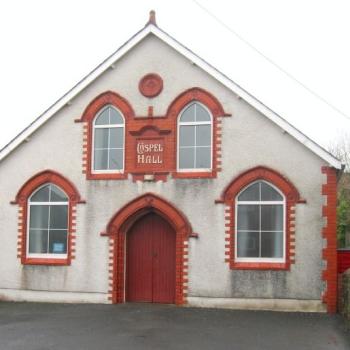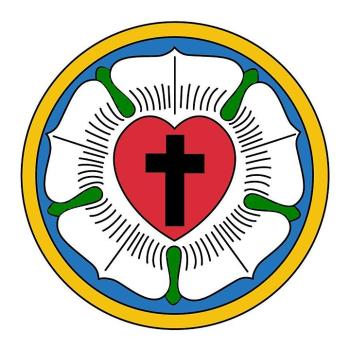Christmas is conspicuously the only time of year when the word “merry” receives heavy use. The greeting “Merry Christmas” dates back to at least 1565, in which year the author of the Hereford Municipal Manuscript wrote “And thus I comytt you to god, who send you a mery Christmas & many.” Charles Dickens’ A Christmas Carol, published in 1843, pushed it forward, as did industrialization: The first commercially sold Christmas card (also printed in 1843) contained the salutation “A Merry Christmas and a Happy New Year to You.”
Yet “Merry Christmas” did not gain universal support. The Night Before Christmas (Clement C. Moore’s, I mean, not Nikolai Gogol’s) ends with the words, “A Happy Christmas to all and to all a good night.” Queen Elizabeth II wishes British subjects a “Happy Christmas” in her annual Christmas broadcasts, and the phrase enjoys a broad general currency the U.K.
What accounts for the difference? Queen Elizabeth, a woman of serious low-church piety, is said to prefer “happy” to “merry” because she dislikes “merry’s” connotation of boisterousness, even slight intoxication. (Similarly, in Holland some of the more strictly reformed Dutch prefer Zalig Kerstfeest—“Blessed Christmas”—to Vrolijk Kerstmis—“Merry Christmas.”)
This moral suspicion of “Merry Christmas” dates back to the Methodist churchmen of the Victorian era who sought to promote sobriety among the English working class. Merrymaking of the ancient, alcoholic sort was frowned on year-round, perhaps never more so than during the celebration of the Savior’s birth. The phrase “Merry Christmas” would hang on, but the image of a family sharing a bottle of port or wine in the first commercial Christmas card was to give way to more temperate holiday depictions.
We may no longer associate “merry” with spirits alcoholic as well as high, but the meaning was once familiar. “Merry” appeared in both the Wyclife and King James bibles in reference to intoxication, where it describes an evening in the life of the rich man Nabal: “He held a feast in his house, like the feast of a king; and Nabal’s heart was merry within him, for he was very drunken.” (To wish someone a holiday feast like Nabal’s was to wish him a very good Christmas indeed.)
To certain ears, then, “Happy Christmas” conveys a sober, well-earned enjoyment, the satisfaction resulting from hard work and virtuous living. “Merry Christmas” stirs in us an impulse more primitive and unrestrained: The childlike giddiness of Christmas morning, the rush down the stairs and tearing at paper, the intemperate delight in gifts long hoped-for and wholly undeserved.
Which phrase conveys a more fitting response to the overwhelming, unearned, gift of Christ’s birth? Suffice it to say that when our Lord comes I hope I do not greet him with dignified reserve but instead rush at him with the unguarded, unembarrassed joy of a child at play or man at his cups. Merry Christmas to all!
This is a great post, but let me pose another possibility. I think you will find that “Happy Christmas” is what they say in England and much of its Commonwealth, whereas “Merry Christmas” is what we say in America. I suspect this is an example of American English preserving older expressions that were current when the colonies were settled but that have since dropped out of British English. (Another example would be “Fall” instead of “Autumn.”) Americans went through Prohibition but still used “Merry,” whereas Australians–who make merry quite a bit in the 16th century sense–still use “Happy Christmas.”
Also, if “merry” connotes intoxication, why isn’t there a tradition of saying “Merry New Year!” It is interesting that the secularist levellers say “Happy Holidays” instead of “Merry Holidays.” I propose that we say “merry” in those contexts, just to throw people off.
Still, Mr. Schmitz makes a good overall point in his post and I like his explanation better than mine.















